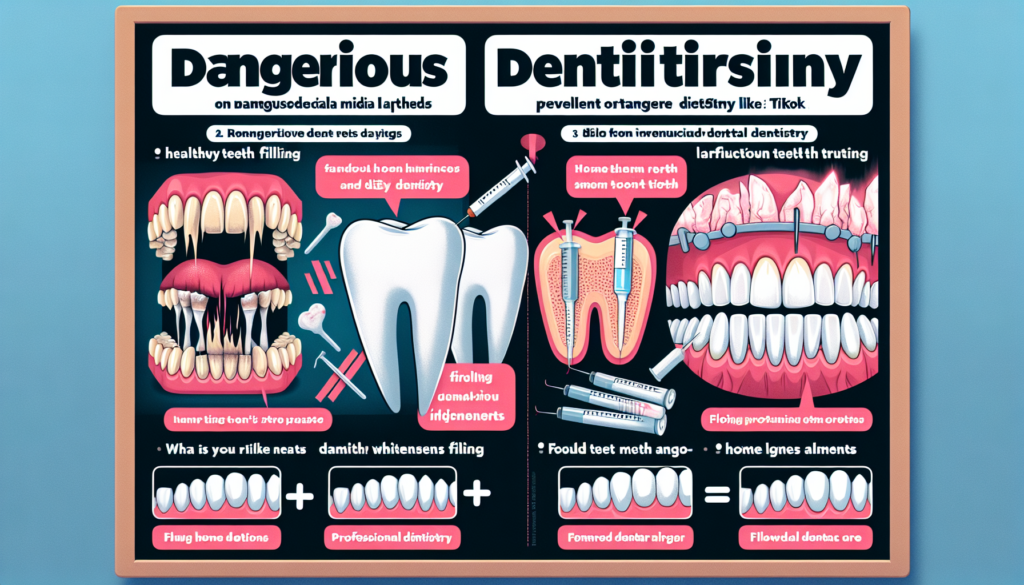Oral Health Crisis Emerging Among Nigeria’s Aging Population
Just like small daily habits can transform your life, consistent dental habits can create a lifetime of confident, healthy smiles. Learn more in The Habit Method.
Introduction: The Overlooked Oral Health Crisis Among Nigeria’s Elderly
As Nigeria’s population ages, a new health concern is quietly unfolding — the significant decline in oral health among older adults. Recent research highlights an alarming rise in senior oral health problems, with conditions such as tooth loss, gum disease, and limited access to dental care disproportionately affecting the elderly. Oral health is more than a dental issue; it is closely linked to nutrition, overall health, and quality of life.
Unfortunately, oral health often goes unnoticed in public health discussions in Nigeria. Yet, for the aging population, it has become a crisis that deserves urgent attention.
Understanding Oral Health in Nigeria’s Aging Population
The World Health Organization defines oral health as being “multi-faceted and includes the ability to speak, smile, smell, taste, chew, swallow, and convey emotions” — WHO. For Nigeria’s older adults, these essential functions are increasingly compromised. Common age-related dental issues in seniors include:
- Tooth loss caused by untreated cavities and gum infections.
- Gingivitis and periodontitis, common in aging populations.
- Dry mouth and oral pain linked to medications and systemic health issues.
According to Nigerian oral health surveys, more than half of adults over 60 experience tooth loss, while gum disease remains widespread. Despite these statistics, dental care is often overlooked in elderly healthcare services.
Rising Oral Health Problems Among Nigeria’s Elderly
Tooth Loss in Older Adults: Causes and Impacts
Tooth loss is one of the most visible senior oral health problems. The primary causes include advanced cavities, untreated gum disease, and the cumulative effects of aging. Beyond aesthetics, missing teeth negatively impact nutrition, digestion, and self-confidence. Seniors may avoid healthy foods like fruits and vegetables due to chewing difficulties, worsening health outcomes.
Gum Disease and Oral Infections in Seniors
Gum disease in aging populations is a major driver of tooth loss. Periodontal infections result from poor plaque control over decades and can progress rapidly in older adults. Beyond oral complications, evidence shows connections between gum disease and systemic illnesses such as diabetes and cardiovascular disease — Journal of Clinical Periodontology. This underlines the need for integrative senior dental care in Nigeria.
Limited Access to Senior Dental Care Services
Barriers to elderly dental care in Nigeria include high out-of-pocket costs, limited insurance coverage, and uneven access to dental specialists. Rural populations face additional challenges, as dental clinics are often concentrated in urban centers. For many Nigerian seniors, regular professional care remains out of reach.
The Role of Poor Awareness and Inadequate Health Policies
A critical issue worsening the crisis is low oral health awareness among seniors. Preventive education is minimal, and most older adults only seek treatment when pain arises. Additionally, Nigeria’s primary healthcare system largely excludes dental services, resulting in poor integration of oral health into overall elderly care.
Without effective public health policies or dedicated government programs, the burden of untreated oral health conditions continues to grow within this vulnerable group.
Consequences of Untreated Oral Health Conditions
Oral health directly impacts physical and emotional well-being. For Nigeria’s aging population, untreated conditions can lead to:
- Poor quality of life: Difficulty eating, speaking, and socializing.
- Nutrition deficiencies: Seniors with missing teeth often reduce intake of healthy, fiber-rich foods.
- Mental health struggles: Shame and social withdrawal due to poor dental appearance.
- Reduced life expectancy: Studies link oral infections with chronic diseases, which may shorten lifespan — NIH.
Preventive Measures to Improve Oral Health in Nigeria’s Aging Population
Promoting Oral Hygiene Education for Seniors
Education is the most affordable and effective preventive strategy. Oral health awareness for seniors should be promoted through:
- Community-based outreach programs targeting elderly care centers and religious gatherings.
- Encouraging habits such as brushing twice daily, flossing, and using fluoride toothpaste.
- Regular dental checkups at least once a year for early detection and treatment.
Affordable and Accessible Dental Services for Older Adults
Expanding dental insurance coverage and subsidizing treatment for older adults can significantly reduce barriers. Mobile dental services and outreach clinics in rural communities would help close the urban–rural divide in access to dental care in Nigeria.
Integrating Oral Health into Nigeria’s Public Health Strategy
A stronger Nigeria oral health policy is urgently needed. This includes:
- Policy reforms to include dental care in national health plans.
- Training more dental professionals with expertise in geriatric dentistry.
- Partnerships with NGOs to fund and deliver preventive dental programs for seniors.
Expert Recommendations and Future Outlook
Public health experts urge urgent policy reforms and improved funding for elderly dental care in Nigeria. NGOs and faith-based organizations are stepping in to raise awareness, but long-term change requires government-led strategies. Emphasis should be placed on preventive care, affordable treatment options, and better integration of oral health into Nigeria’s broader aging policies.
With a rapidly growing elderly population, the need to act is immediate. Consistent oral healthcare practices, combined with improved public health systems, can help reduce inequalities across the nation.
Conclusion: Tackling Nigeria’s Silent Oral Health Epidemic
Nigeria’s elderly face a growing oral health crisis characterized by tooth loss, gum disease, and poor access to dental care. If left unaddressed, this trend will continue to compromise the dignity, nutrition, and longevity of seniors. Policymakers, healthcare providers, and communities must work together to prioritize oral health in Nigeria.
Just like small daily habits improve health and happiness, small oral care changes can transform lives. Discover more about building healthy, lasting routines in The Habit Method.
Frequently Asked Questions
1. Why is oral health important for Nigeria’s aging population?
Oral health affects nutrition, communication, and overall well-being. For seniors, poor oral hygiene can worsen chronic diseases and reduce quality of life.
2. What are the most common oral health problems in older Nigerian adults?
The most common issues include tooth loss, gum disease, cavities, dry mouth caused by medications, and oral infections.
3. How can seniors in Nigeria prevent tooth loss?
Regular brushing with fluoride toothpaste, flossing, routine dental checkups, and avoiding tobacco can help protect teeth into old age.
4. Why do many Nigerian seniors struggle to access dental care?
High costs, limited insurance coverage, and the lack of dental clinics in rural communities are the main barriers to elderly oral healthcare in Nigeria.
5. What solutions can improve elderly dental care in Nigeria?
Policy reforms, subsidized services, more geriatric dental specialists, and public awareness campaigns can significantly improve oral health outcomes for older adults.
Post Disclaimer
DentalUp is for educational purposes only and cannot accept personal dental information such as x-rays, photos, or treatment details. See full disclaimer here.





